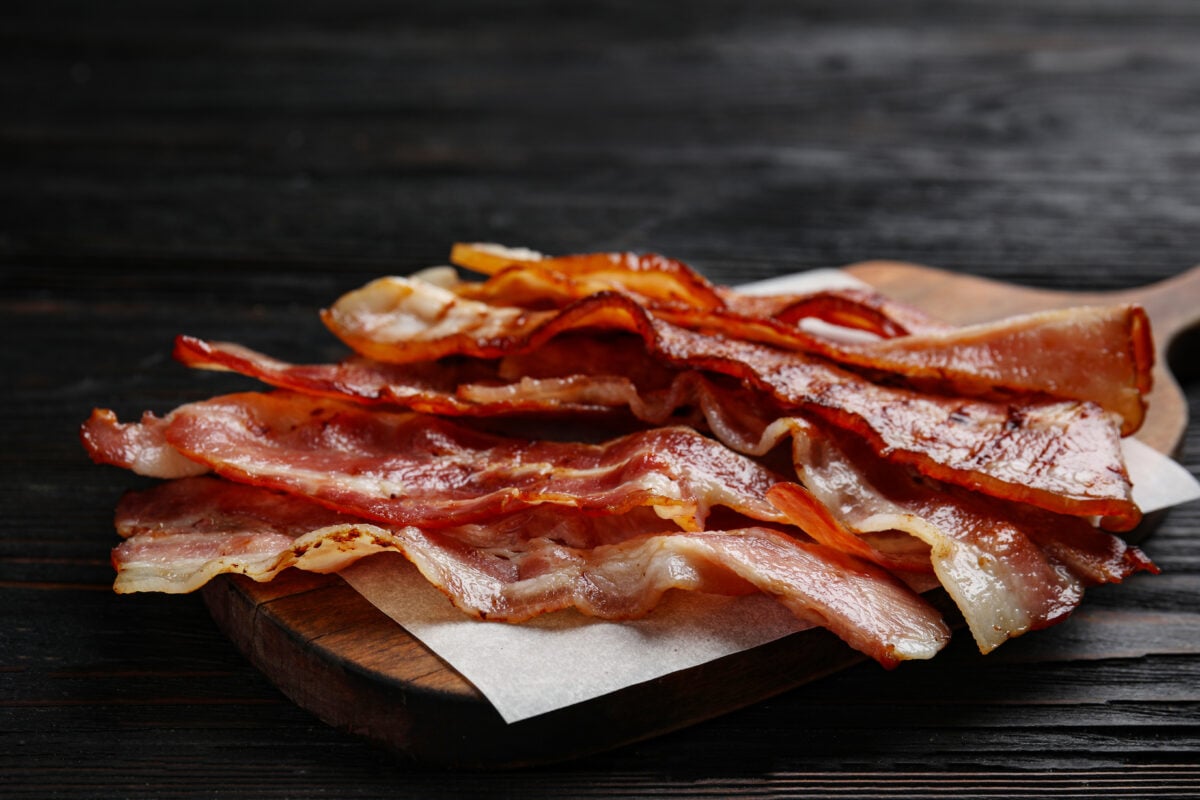Robert F. Kennedy Junior, also known as RFK Jr, is an environmental lawyer and US President-elect Donald Trump’s presumptive nominee for Secretary of Health and Human Services.
Read more: ‘What Food History Tells Us About Living Longer’
RFK Jr is a divisive figure. He repeats controversial and widely debunked conspiracy theories on everything from vaccines to fluoride. He has also promoted high-risk fad foods such as raw milk.
RFK Jr’s appointment as the Secretary of Health will entrust him with providing “effective health and human services,” as well as fostering “sound, sustained advances in the sciences underlying medicine, public health, and social services.”
Many medical professionals have criticized his appointment, contrasting his wild theorizing with the seriousness of the role. One Professor of Paediatric Infection and Immunity referred to the decision as a “slap in the face” of evidence-based health policies, particularly in light of RFK Jr’s repeated criticism of vaccines.
Despite his many unsupported health claims, some professionals have welcomed the opportunity to “galvanize” progress in areas that they, RFK Jr, and much of the American public share ground. In particular, RFK is an outspoken critic of the “heavily processed unhealthy foods” which make up approximately 60-70 percent of the standard American diet (SAD).
Processed foods come with both risks and benefits

Rohini Bajekal, Nutritionist and Communications Lead at Plant-Based Health Professionals UK (PBHP) tells Plant Based News (PBN) that many ultra-processed foods (UPFs) combine fat, sugar, salt, and artificial flavors, eschewing fiber and nutrients.
“They are considered hyper-palatable: this means they are irresistible, easy to overconsume, and are capable of hijacking the brain’s reward system thus provoking powerful cravings,” explains Bajekal. “This can lead to overconsumption.”
There is a growing body of evidence indicating that UPF overconsumption increases the risk of developing diabetes, cardiovascular disease, mental health issues, cancers, and poor gut health. However, the phrase “ultra-processed” is very general, encompassing many different foods with varying nutritional values, degrees of processing, and perceived healthfulness.
Some UPFs are best described as “food-like substances,” a phrase used by Bajekal for items with almost no nutritional value at all, but for other foods, processing can improve nutrient density. For example, cooked, canned, and concentrated tomatoes typically contain more bioavailable lycopene, a “powerful antioxidant” with confirmed anti-cancer properties.
Fermentation, which can also be considered a form of food processing, adds nutritional value to the base ingredients, as in tempeh. Meanwhile, freezer technology enables the year-round storage and consumption of nutritious foods. RFK has been particularly critical of pasteurization, but the pasteurization process kills harmful bacteria in food and drinks like milk, juice, beer, and canned foods, aiding human health and saving countless lives.
“Not all processed foods are created equal,” notes Bajekal. “Canning, cooking, freezing, fermenting, and drying are all processing methods. There are usually both positive and negative implications for nutrition as a result of them.”
Read more: New ‘Ultra-Processed’ Guide Answers All Your Questions On UPFs
Processed foods play an ‘important role’ in many people’s diets
RFK Jr has specifically targeted processed cereals, and said that “kids shouldn’t be eating grains.” But while excessive consumption of refined grain does come with potential health risks, many Americans also rely on fortified cereals to mitigate nutrient deficiencies – a pressing issue for most of the population.
“Processed foods play an important role in many people’s diets. This may be due to time, cost, cooking ability or access, health issues, or any unique nutritional needs,” explains Bajekal. “They can also help certain groups of people such as children or older adults meet their nutritional needs.”
“Some processed foods make eating more enjoyable, convenient, and easier to meet my nutrient needs,” adds Bajekal. She tells PBN that some of her go-to processed foods included fortified plant milks, yogurts, and calcium-set tofu.
Plant-based products like these are some of the most criticized UPFs of all, but studies indicate that even processed options are typically healthier and more sustainable than meat and dairy. Bajekal says that negative narratives around plant foods are used as “an excuse” to promote animal-based foods as “natural,” or “unprocessed.”
Processed animal products and negative health outcomes

In addition to grains, RFK Jr has criticized seed oils, which he says kids should also not eat. He has said that the broader move away from traditional animal fats like beef tallow towards vegetable oils is responsible for rising obesity rates nationwide.
“There is no evidence to reflect this,” said Bajekal. “In fact, the data shows that seed oils or many vegetable oils can benefit human health.”
Plant-based oils are certainly thought to be better for heart health than tallow and dairy butter, and a major 20-year review from earlier this year found that eating a plant-based diet was “significantly associated” with better health markers.
A recent deep dive into RFK Jr’s claims about the benefits of tallow by The Atlantic noted that a national shift from saturated to polyunsaturated fats in the middle of the 20th century was followed by a 56 percent reduction in heart disease deaths. Longstanding medical advice suggests limiting the consumption of saturated animal fats to lower obesity risk and cardiovascular disease risk.
It’s worth noting here that certain highly processed animal-based foods are strongly linked to negative health outcomes but have not been specifically addressed by RFK Jr. For example, bacon, ham, hot dogs, and salami are all group 1 carcinogens, meaning they are known to cause cancer. Red meat is linked to colorectal cancer and diabetes, while dairy products are a major source of salt and saturated fat. (The average American eats approximately 42 pounds of cheese per year.)
‘Make America healthy again’
RFK Jr’s criticism of UPFs undoubtedly reflects the concerns of many medical professionals and American citizens. However, his comments repeatedly fail to acknowledge the need for more scientific research in this area, the complexity of the subject, countless intersecting socioeconomic factors, and the specific role of animal products – both processed and unprocessed – in negative health outcomes.
RFK Jr’s promotion of animal ingredients in place of plant-based ones also does not take into account the way animal agriculture negatively impacts the environment, the climate crisis, and human health, or how all of those outcomes are interlinked.
There is currently a multi-state bird flu outbreak amongst dairy cows in the US. Earlier this year, Robert Redfield, the former director of the US Centers for Disease Control and Prevention (CDC) warned that bird flu is “very likely” to be the next human pandemic. While RFK Jr has been extremely critical of the CDC, he has yet to comment on the role of animal farming in contemporary health crises.
Approximately 99 percent of all animals raised for food in the US are factory-farmed. The cramped, inhumane conditions of factory farming increase zoonotic disease risk, while the industry’s overuse of antibiotics further undermines public health, causing illness and death. While the impact of processed foods requires immediate further investigation, the role of animal products and factory farming in public health also demands the fullest consideration from the US government’s Department of Health and Human Services, whoever the Secretary of Health may be.
Read more: Plant-Based Diets Nearly 20% Cheaper Than Standard American Diet, Research Finds






